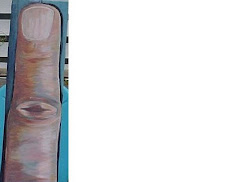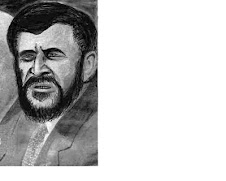"The only devils in the world are those running around in our own
hearts-that is where the battle should be fought."
-- Mahatma Gandhi
Paula Broadwell a révélé que l'annexe du consulat était la plus importe base de la CIA en Afrique du Nord et qu'elle servait de prison secrète.
Ordinary Men:
All functionaries in the German Army suspected of being Communist were denied prisoner of war status and executed. Then the "Barbossa decree" was issued, which removed the actions of German soldiers toward Russia civilians from the jurisdiction of military courts and explicitly approved collective reprisal against entire villages (not unlike what GW's regime did in Iraq to Fallujah). It was, in fact, a shooting license against Russian civilians. Major Weis, as documented in Christopher Browning's "Ordinary Men", described it thus : "The War was a war against Bolsheviks and Jews", a reality documented in Upton Sinclair's "World's End" series:
This remarkable series of books, which started espionage as a form of reality-based fiction starring Lanny Budd as the first James Bondish, albeit less adolescent in its prestidigitation. In this series, hailed by both Bertrand Russel and Albert Einstein as the best documentation of the machinations on the State level of the forces that brought us WW2, including the Cliveden group in Britain, and fascist Industrial magnates in the US, including Ford, was sold out on every printing during the war, and now languishes on library shelves, unread and unknown, because it shines a light into the dark heart of capitalism, a heart encrusted with blood and dependent on torture and slavery for its existence.
But the vast majority of Americans don't even know what Bolshevism refers to, the history of pre-WW2 Europe is so assiduously repressed. De Toqueville referred to this form of repression, in his seminal work "Democracy in America" (another tome with which the American public is largely unfamiliar) as "Mild Despotism", an erosion of liberty far more serious than the violent form of despotism characteristic of feudal societies:
It covers (society's) surface with a network of small, complicated painstaking uniform rules through which the most original minds and the most vigorous souls cannot clear a way to surpass the crowd; it does not break wills, but it softens them, bends them, and directs them; it rarely forces one to act, but it constantly opposes itself to one's acting; it does not destroy, it prevents things from being born; it does not tyrannize, it hinders, compromises, enervates, extinguishes, dazes, and finally reduces each nation to being nothing more than a herd of timid and industrious animals of which the government is the shepherd (the Corporation, the Owner).
I couldn't help but remember this quote, cited in Toby Young's "How to Lose Friends and Alienate People", while reading Louis Menand's article in the New Yorker on Anne Applebaum's book, "The Crushing of Eastern Europe", in which she states that, " ... the grant of immunity gave the Soviet Union a free hand to carry out one of the most radical experiments in social engineering in history, whose goal was to remake Eastern Europe from top to bottom to serve a political system ... to forge a new kind of human being who would not need to be forced to serve the system."
The means used to justify this end are what Applebaum's book uses to describe "how the Soviets and their local apparatchiks attempted to build the perfect Socialist world". Describing how Stalin, between 1929 and 1953 sent 18 million people to labor camps in the soviet Union, she completely dismisses the 18 million Americans living in the American South, some of whom had fought in WW2 also, who were in the same type of terror-driven, one-Party system, called Jim Crow.
Waxing eloquent about the unfortunates "who were caught in the insatiable maw of Stalinist purgation and arrested, transported, incarcerated, abused, and for the lucky, released", she blithely ignores the plight of America's blacks trapped in the racist south who, during the same time period to which she refers, were also arrested, transported abused and incarcerated, but never truly released, as their release was only into the maw of the Southern lynch mob. And there was no need of a cover of "trying to build a more perfect Union", as the Union was the one thing that most Southerners could attest to most definitely having no desire to be a part of. No. There was no bright future for humanity desired by the Party apparatchiks known as Dixiecrats. There was only continued repression and exploitation of a captured and well-marked, therefore easily identified, population.
Applebaum further states that "in Nazi Germany and in the Soviet Union, the agent of transformation was not the state. It was the party." Just as in the US South. "The state, especially the judiciary, was simply the party's bureaucratic dummy." This was because "the purpose of totalitarian transformation was not mere efficiency." No. "The purpose was the realization of a law of historical development, the correct understanding of which was a monpoly of the party. In Hitler's Germany, life was transformed in the name of a single goal: racial purity." The exact same goal as in the American South, where the most important goal for light-skinned Negroes was to "pass" as white, because that meant the difference between relative prosperity and lifelong debenture.
What Applebaum, as so many others, refuses to see, let alone acknowledge, is that what Hitler used as a template for the imposition of total party control was in fact the USA's Southern States: their political structure and the theory of racial superiority which was its foundation. But because, as de Toqueville noted, "I do not know any country where, in general, less independence of mind and genuine freedom of discussion reign than in America", its citizens refuse to notice a few inconvenient truths:
The technology and mindset on which the entire military-industrial machine depends are all of German, or more specifically, Nazi, origin: from the interstate highway system, to the atomic bomb, to the vehicle of its delivery, the ICBM's rocket technology, right down to that most modern machine of mayhem, the drone vehicles of slaughter.
As documented in Sinclair's above-referenced, "World's End" series, Adi Schickelgruber, sitting in his Berchtesgaden retreat, fantasized about the deployment of such smiters of those who dared oppose him.
Next, although it seems, at its least, quaint, at its worse, subversively communistic, it was the people's money and labor that enabled the development of all the items mentioned above as well as the internet, the computer, the banking system, all of which have been not only turned against them, but have been used by the upper class to cement their iron grip on the productivity of labor, funneling it to themselves, proclaiming they are the job creators, even as the destruction of entire industries at their hands continues unabated. As they disdain the 47% for their feeling of entitlement, it is from the rich they get such feelings. The hatred of work and the love of ease is not necessarily an inborn trait. In Hans Fallarans' "Wolf among Wolves", Wolfgang grows up and becomes a man when he moves out of 1923 Berlin to the countryside, where he takes on the responsibility of running an entire farm and forest. It is his work and his growth as a person that that work provides him that is the grist of his mill and the source of his begrudging, but deep, happiness. But, because they do no actual work, the claim of the rich to their "peculiar institution" of Hereditary Entitlement, one as debilitating and brutal as that other well-known one, is much more logically tenuous.
And finally, as made so obvious by Anne Applebaum's article, and remarked upon by Gandhi in the quote that begins this post, the real failing of American Democracy and its Educational Institutions, as well as its religious organizations, is the continued embodiment and enshrining of Evil as something outside of the self that can be personified and consequently, destroyed, so that only the Good people are left. The Good people who will then run the world in a sensible, just, and god-fearing way.
But the point so well made by Browning's "Ordinary Men" is that reality isn't like that. Ordinary men, not just Nazi and Stalin thugs, do evil deeds. You have evil in your heart just as I do, and it can never be expurgated, only controlled and, hopefully, when its worst manifestations are given free rein, its consequences mitigated.
George Bush, in the run-up to the cakewalk that was to be the destruction of Iraq, waxed eloquent about our desire to liberate the Iraqi people. The same people who less than a week later we were referring to as our enemy as we destroyed the last vestige of Iraq as a modern country. Yet they had done nothing to us whatsoever to earn this change of status: we had invaded their country under completely trumped up allegations, so they were now the enemy. And as such they earned our hatred, our wrath, our rain of depleted uranium bombs, economic destruction and wholesale theft of their national treasures. This is an example of pure evil, but not a word was said; not a tear was shed. So send not to see for whom gapes hell's hole: it gapes for thee.
























































